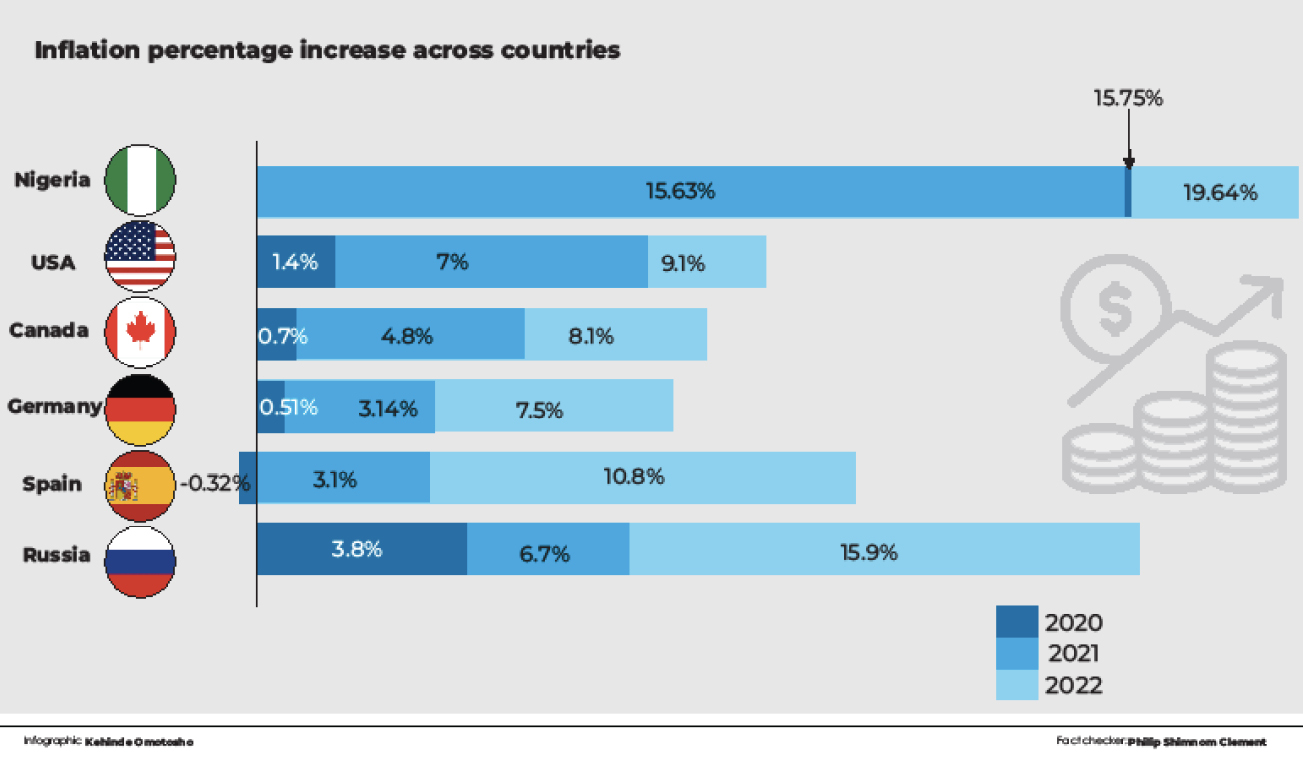Nigeria’s July inflation not highest
Claim: An activist and political critic, Adeyanju Deji, has claimed that the inflation figure Nigeria recorded in July is an all-time high, meaning that it is the highest ever recorded in the country. Verdict: The claim is false. Available records show that Nigeria’s inflation figure had increased to over 20 per cent in 2005 and […]

Nigeria’s July inflation not highest
Claim: An activist and political critic, Adeyanju Deji, has claimed that the inflation figure Nigeria recorded in July is an all-time high, meaning that it is the highest ever recorded in the country.
Verdict: The claim is false. Available records show that Nigeria’s inflation figure had increased to over 20 per cent in 2005 and 2003. But the 19.64 recorded in July was the highest the country has recorded since 2005.
Full text
Following the release of Nigeria’s Consumer Price Index (CPI), an activist and political critic, Adeyanju Deji, posted on his Facebook page, his displeasure on the opposition Peoples Democratic Party (PDP) for not being vocal on the trajectory the economy has headed under the leadership of the All Progressives Congress (APC).
In the post, which has garnered over 1,000 likes and 600 comments, Deji claimed that with inflation reaching an all-time high under the APC and the economy destroyed, the PDP had not played the role of a strong opposition party.
He stated, “The PDP is a clueless opposition. That’s why the NNPC will fail to remit anything to the Federation Account this year and they act unaware despite all the monumental corruption in the country. Was this how the APC played opposition in 2014/2015? The economy is completely destroyed with inflation at an all-time high but they refuse to oppose the government.”
Background
Nigeria’s inflation has been on the rise since December last year, with the figure climaxing to 19.64 in July. The National Bureau of Statistics (NBS), the agency tasked with conducting national survey, had in a recently released report, stated that the increase in inflation was caused by an increase in food index, attributed to the disruption in the supply of food products; an increase in the cost of transportation, arising from the higher cost of energy; an increase in import costs due to currency depreciation, as well as a general increase in the cost of production.
Consequently, the NBS stated that prices of food increased by 22.02 per cent, while that of all items rose to 16.26 per cent. Also, urban inflation was 20.09 per cent while rural inflation was 19.22 per cent.
Verification
A check on the website of the Central Bank of Bank (CBN) revealed that the country has recorded an inflation figure that has surpassed 19.64 per cent.
Tagged All Items (Year on Change), its catalogue showed that the inflation figure in September 2005 was 24.30 per cent, while in August, it was 28.20 per cent and July was 26.10 per cent. Similarly, in 2004, January had 22.20 per cent, February 24.80 per cent and March, 22.50 per cent. In 2003, October had 23.60 per cent, November, 21.30 per cent and December, 23.80 per cent.
However, the website contained a note that a new base period for consumer price indices was done in November 2009.
To know whether the new base could have any effect on the inflation figure recorded before 2009, the spokesperson of the NBS, Mr Sunday Joel Ichedi, said the rebasing did not affect it.
According to him, rebasing is an overtime update on the commodities on its index list to know what goods consumers are spending much on.
“It means you bring more items we use to collect prices during consumer surveys. In Nigeria we use the living standard survey, so it is used to calculate how much is spent on each of the commodities. The one with the highest means that people are going for it like food.”
Conclusion
The 19.64 inflation figure recorded in July was not the highest in the country but the highest since the inflation survey was rebased in 2009.
